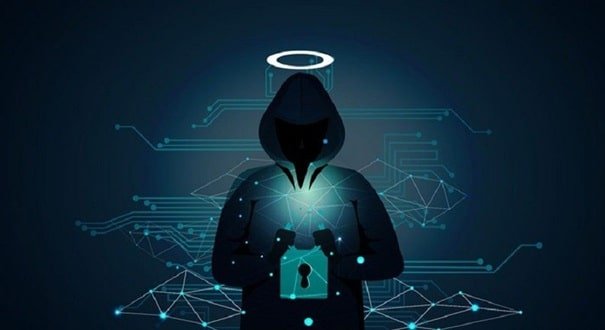Top 5 Ethical Hacking Courses That Guarantee Hands-On Experience
As our world becomes increasingly digitally connected, threats to cybersecurity are increasing. Businesses and governments have an ongoing need for skilled professionals to safeguard confidential information, fend off cyber attacks, and maintain secure digital infrastructure. The demand for ethical hackers — professionals who legally and proactively identify vulnerabilities and weaknesses in the target’s system — has soared as a result.
But for anyone seeking to become a certified ethical hacker or advance their overall cybersecurity knowledge, ethical hacking training programs offer the knowledge, hands-on experience, and practical certificates to succeed. In this piece, we will delve into the best 5 ethical hacking courses that offer practical experience to students and prepare them for real-world cyber scenarios.

Why Ethical Hacking Abilities Are in Demand by 2025
Organisations are shifting their security postures and moving away from purely reactive approaches as cyber threats become more sophisticated. It is the responsibility of ethical hackers to:
- Find and fix flaws before attackers can take advantage of them.
- Perform penetration and vulnerability testing.
- Learn from attack techniques to improve security methodology.
- Comply with cybersecurity requirements and standards.
Formal ethical hacking training is geared to prepare people for processing intrusions and attacks as they occur in real time.
What to Expect in an Ethical Hacking Course
Not all courses are equally real life. When you are choosing a course, check for programs that:
- Hands-On (Virtual) Labs: Mock environments to practice the art of hacking without causing harm.
- Practice Until Perfect: Exposure to attack vectors, malware, and network vulnerabilities.
- Certification Prep: Mapping to specific certifications such as CEH (Certified Ethical Hacker).
- Seasoned Coaches: Training from those who have actually worked in the industry.
- Updated Content: New response and remediation protocols for modern threats (including cloud weaknesses, AI-based attacks, and IoT vulnerabilities).
All of these elements help learners develop practical competency and not just a theoretical perspective.
5 Best Ethical Hacking Courses With Hands-On Practice
EC-Council Certified Ethical Hacker (CEH)
The CEH training is one of the most in-demand programs for IT security professionals. It offers intensive training on attack vectors and their countermeasures.
Highlights:
- Hands-on Labs: Tax-free practice on Complete EC-Council iLabs for Ethical Hacker (Architecture, Database Design, Security, Operations, and Management) complement the theoretical preparations.
- Curriculum: Covers footprinting and reconnaissance, scanning networks, enumeration services, system hacking, viruses and worms threats, and social engineering.
- Certification: Exam 312-50
What You Will Learn:
Understand ethical hacking and different types of hackers; discover various ways to prevent hacking; learn hacking tools; carry out penetration testing in cloud environments; perform network analysis using port scanning, traffic sniffing, log management, and wireless access point security.
Who This Course Is For:
Beginners wanting to learn more about IT and cybersecurity.
Offensive Security Certified Professional (OSCP)
OSCP focuses on deep penetration testing experience and is famous for its intense exam testing vulnerability identification in a controlled setting.
Highlights:
- Lab-based Learning: In-depth virtual labs with real-world attack scenarios.
- Exam: 24-hour hands-on test on hacking skills and reporting.
- Learning Points: Networking, exploitation, privilege escalation, and reporting.
Ideal for anyone pursuing a career in penetration testing or offensive security.
CompTIA PenTest+
Open to beginners and experienced individuals, CompTIA PenTest+ provides both theory and practice, focusing on practical penetration testing for networks, systems, and applications.
Highlights:
- Virtual Labs: Simulated lab environment to analyse attacks.
- Curriculum: Vulnerability scanning, elements of an attack, and risk identification.
- Certification: Accredited worldwide.
Good for IT professionals wanting to improve security assessment capabilities.
EC-Council Certified Security Analyst (ECSA)
ECSA covers advanced penetration testing methods and complements the CEH course with real-world exercises.
Highlights:
- Hands-On Labs: Network and web application penetration testing.
- Curriculum: Advanced security testing, report writing, and risk adoption.
- Certification: Suitable for professional penetration testers.
Great for ethical hackers looking to advance their careers in penetration testing.
SANS SEC560: Network Penetration Testing and Ethical Hacking
Offered by the SANS Institute, this course mixes theoretical knowledge with hands-on experience.
Highlights:
- Hands-On Labs: Includes new network attack vectors and defensive exercises.
- Curriculum: Scanning, system hacking, post-exploitation, and reporting.
- Certification: Prepares for GIAC Penetration Tester (GPEN) certification.
Ideal for those seeking practical, industry-aligned training.
Key Skills You Learn in Ethical Hacking Courses
Ethical hacking training makes professionals proficient in:
- Network Security Assessment: Assessing and securing networks against intrusions.
- Penetration Testing: Identifying vulnerabilities in systems and applications.
- Malware Analysis: Recognising and defeating malicious software.
- Incident Response: Preparing to compete in the cybersecurity workforce.
- Reporting and Documentation: Communicating results effectively to stakeholders.
These skills are vital for roles like Security Analyst, Pen Tester, or Ethical Hacker.
Why Hands-On Experience Is Non-Negotiable
Cybersecurity is an ever-evolving field requiring practical experience. Simply understanding theory is insufficient. Hands-on labs and real-world exercises help you:
- Apply concepts in real environments.
- Understand attacker behaviour and techniques.
- Recognise and address vulnerabilities.
- Prepare to meet industry work-ready skill requirements.
Practical exposure-focused courses give you an edge and prepare you for certifications and industry demands.
Career Opportunities after Ethical Hacking Training
Ethical hackers who complete training gain:
- Increased Employability: Employers prefer practical skillsets.
- Higher Pay Scale: Ethical hackers are among the highest-paid cybersecurity experts.
- Global Opportunities: Certifications like CEH, OSCP, or GPEN are recognised worldwide.
- Varied Roles: Security Analyst, Penetration Tester, Red Team Specialist, and more.
- Lifelong Learning: Foundation for advanced cybersecurity education and certifications.
Whether starting or advancing, ethical hacking training boosts your career potential.
Selecting the Right Course
Consider the following when choosing an ethical hacking course:
- Accreditation: Look for EC-Council, CompTIA, or SANS accreditation.
- Hands-On Labs: Practical guided labs are essential.
- Instructor Skill: Experienced trainers who share real-world insights.
- Curriculum Validity: Includes current threats like cloud, AI hacks, and IoT security.
- Certification Ready: Prepares you for industry-recognised exams.
Choose wisely for hands-on experience and certification that matters.
The Future of Hacking and Cyber Defence by 2025
AI, cloud adoption, IoT, and remote work drive more sophisticated cyber attacks. White hat hackers will remain essential to defending digital systems.
Investing in ethical hacking training prepares you for current and future threats. Skilled professionals with hands-on experience and recognised credentials will be in high demand globally.
Conclusion: Invest in Hands-On Ethical Hacking Training
Ethical hacking is more than a job — it is a moral commitment to protect organisations from malicious attacks. Taking ethical hacking or specialised courses ensures you gain the knowledge and skills for a successful career in this evolving field.
The five courses detailed above offer practical, well-structured training for real-life scenarios, certifications, and well-paying jobs. Combining theory with labs ensures your skills stay current and relevant.
If you want to build a career in cybersecurity, now is a great time to enrol in an ethical hacking course and become a valuable asset to the industry.


